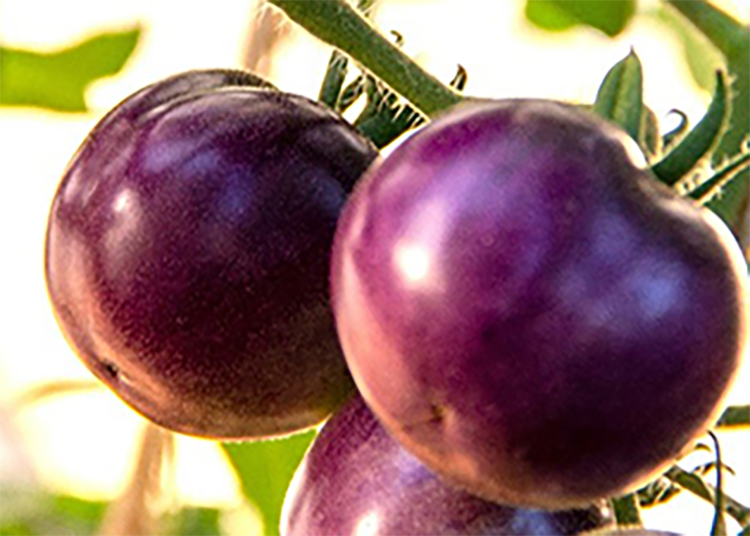A purple tomato from Norfolk Plant Sciences, with higher antioxidants thanks to the addition of two genes, was assessed positively by the USDA’s Animal and Plant Health Inspection Service (APHIS), who announced earlier this month “from a plant pest risk perspective, this plant may be safely grown and used in breeding in the United States.”
APHIS determined that the plant “is not subject to regulation under 7 CFR part 340” and is unlikely to present an elevated plant pest risk when compared to other grown tomatoes.
The “big purple tomato” produced by Norfolk Plant Sciences is not only eye-catching but also rich in anthocyanins, antioxidants that are also present in blackberries and blueberries and which, according to research, can help prevent cancer, inflammatory diseases, and type 2 diabetes, Wired writes.
“Higher dietary intakes of anthocyanins and berry fruits are associated with a lower T2DM (type 2 diabetes) risk,” according to Nature.
“Our purple tomatoes produce the highest levels of anthocyanins, which are antioxidant compounds with widely-recognized health benefits,” says Norfolk Plant Sciences. “By carefully adding two genes from snapdragons that work like ‘on switches,’ our tomatoes and juice are a rich source of antioxidants.”
Martin and her crew have been cross-breeding their purple tomatoes over time to increase their size and flavor over the tiny type they first developed, Wired says. A purple cherry tomato will be introduced in a few test markets in 2023 by Norfolk Plant Sciences, a business plant scientist Cathie Martin helped cofound, according to Wired.
In addition to producing beefsteak tomatoes, sun-dried tomatoes, and purple tomato juice, the biotech company says it is developing seeds for home growers.




